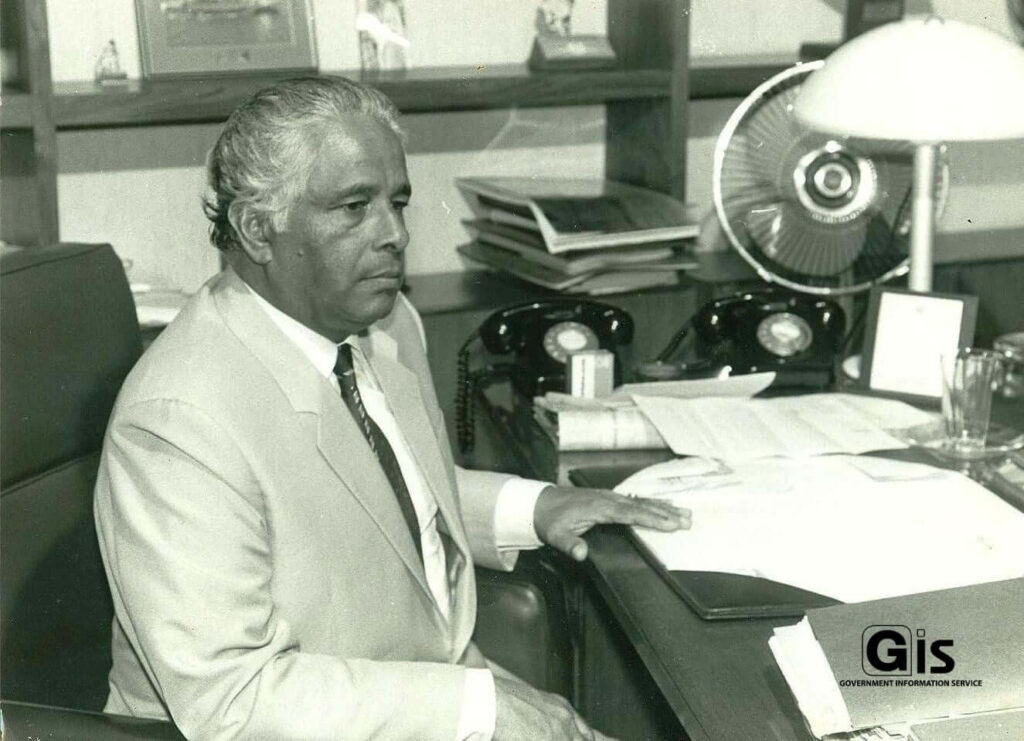This illustrates his personal courage and his firm commitment towards independence. Although he was an IFB delegate, he showed his resolution to vote in the higher interest of the country above the narrow interest of his party. In this instance, he showed that he cared more for the country’s future and the long-term interest of the people above all, rather than blindly following a dogmatic leader. The end result was that the IFB voted for independence alongside the Labour Party against PMSD. Clearly, this illustrates the crucial point that when it came to long-term national interest, the country and its people could always depend on the support of Anerood Jugnauth. Somehow, it reminds us how since childhood, Jugnauth had learned the wisdom to frame his character and fighting spirit for the greater interest of his country.
The second incident shows Anerood Jugnauth joining the MMM as its President, with Paul Berenger as its leader and Secretary General. There again, Anerood Jugnauth played the role of the spectator while preparing his strategic moves. This enabled him to keep a close watch over the plans and activities of Berenger. It also explains why he stayed absolutely quiet without aiding nor participating nor defending any insurrectionary act.
Patiently and steadily, Jugnauth kept watching the strategy and the repeated national disturbances. He recorded the many general Trade Union strikes from 1971 to 1979 which paralysed the economy. Sometimes, it took a violent turn. There, was the dramatic trade union strike of 1979. If it was not for Yusuf Mohamed, the strong Minister of Labour of the Labour Government who was able to overpower the Trade Union coup, the economy would have been in a chokehold.
To those who understood the revolutionary tactics at play, the aim was to capture power by revolutionary means in order to impose a marxist regime as had happened in Madagascar, in Libya under Colonel Khadafi or in numerous South American countries which had turned to the far left. As for the electorate, it was largely illiterate and unaware of these intentions.
Anerood Jugnauth had kept a close watch over these actions. In the post-1982 election, he was strategically supported by Sir Seewoosagur Ramgoolam as well as Burrunchobay, the Governor General. He was backed by the SMF, under Colonel Dhan Bhima and a group of friends, including me, as well as the Indian Government, so that jointly and severally, we could stand by Jugnauth as Prime Minister. Once firmly in the saddle, Anerood Jugnauth showed his mettle. As the Prime Minister, Jugnauth consolidated his hold on power by founding the MSM and allying with Labour and PMSD to defeat Berenger roundly in the election. As such, Jugnauth fortified himself in power through good governance with his allies, to usher in a new era of economic development.
Berenger learned to change his behaviour since he knew that Jugnauth was a tough man unlike his predecessor, the elderly and tolerant former Prime minister, Sir Seewoosagur Ramgoolam. This proved, once for all, that Jugnauth could be trusted to maintain law and order and improve the economic conditions of the country.

From hindsight, Sir Anerood Jugnauth had achieved two considerable feats for which generations to come will have to pay gratitude to him. First, in the 1965 London Constitutional Conference, he had firmly stood behind SSR in favour of independence. Secondly, he had been able to preserve and strengthen democratic ideals by suppressing communist insurgencies.
Anand Mulloo Author of SIR ANEROOD JUGNAUTH, Leading Mauritius Forward, 2016.
Since childhood, Jugnauth had learned the wisdom to frame his character and fighting spirit for the greater interest of his country



Comments are closed.